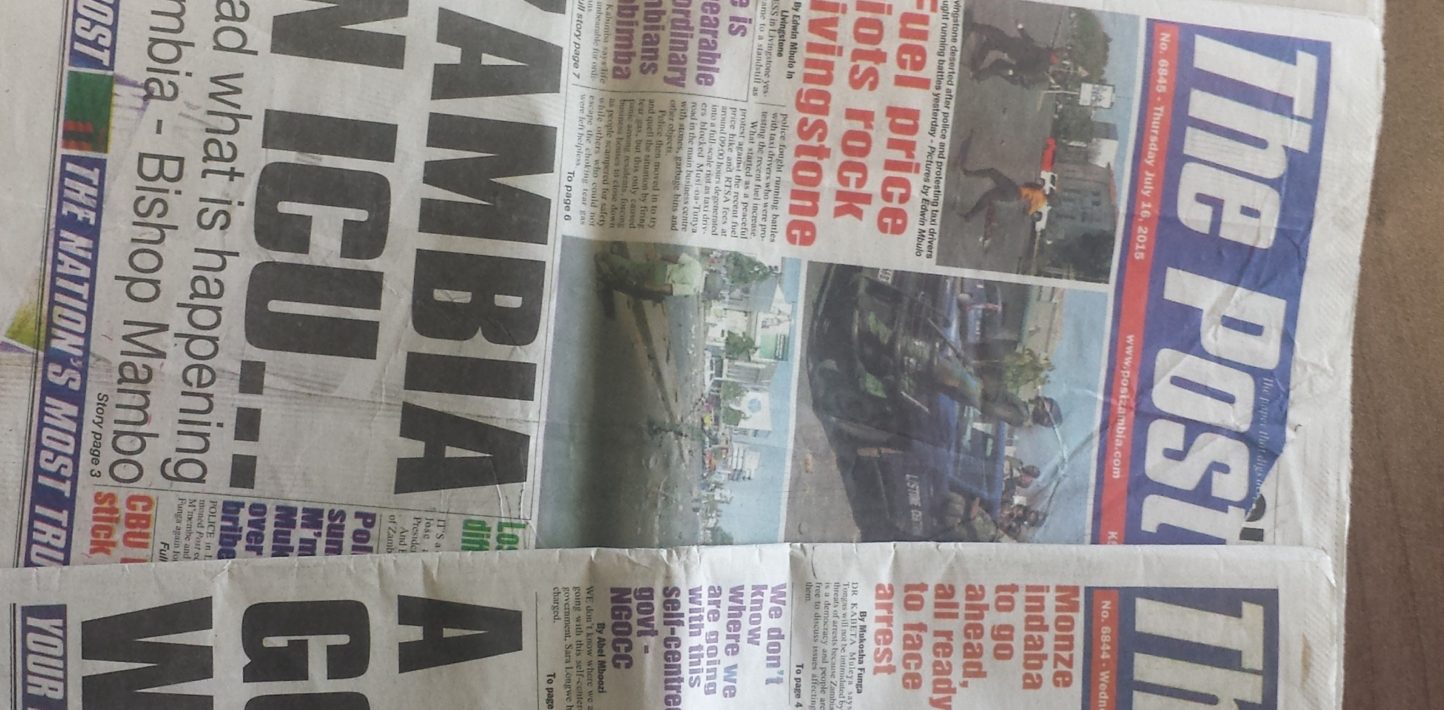The decision to shut down the independent newspaper, The Post, is a deliberate ploy to silence the media ahead of the election, said Amnesty International today.
The closure of The Post newspaper is a disturbing development clearly designed to silence critical media voices
Deprose Muchena, Amnesty International’s Director for Southern Africa
Zambian authorities ordered the closure of the publishing company, Post Newspapers Limited, on 21 June 2016, demanding US$6.1 Million tax in arrears. However, the newspaperis alleging selective application of the law by authorities to target the critical news organization.
“The closure of The Post newspaper is a disturbing development clearly designed to silence critical media voices. The shutting down of one of Zambia’s main independent newspapers in the run up to an election is an affront to media freedom and the authorities should immediately reverse their decision,” said Deprose Muchena, Amnesty International’s Director for Southern Africa.
“If the newspaper owes taxes, necessary arrangements should be made to settle the dispute. Shutting down the newspaper threatens the right to freedom of expression.”
The closure of the newspaper comes as Zambia is scheduled to hold its general election on 11 August and election campaigning is gaining momentum. The Post is one of Zambia’s few politically outspoken and critically independent newspapers.
Rather than interfering with freedom of the press, the government should encourage an independent and diverse media
Deprose Muchena
“The media should not be targeted. Instead they should be encouraged, supported and strengthened to ensure accountability, checks and balances, particularly during this election period,” said Deprose Muchena.
“Rather than interfering with freedom of the press, the government should encourage an independent and diverse media.”
Background
On 15 July 2015, police arrested Fred M’membe, owner of The Post newspaper, and journalist Mukosha Funga for an article they published in March. The article discussed the investigation by the Anti-Corruption Commission (ACC) of a presidential aide soliciting a bribe from a Chinese businessman to arrange an appointment with the President.
The Post had published a letter from the ACC to the President notifying the President about its investigation. In May, the presidential aide reported the leak to the police, who questioned the journalists before releasing them.
However, on 15 July they were arrested and spent a night in custody before appearing in court, charged with publishing classified information. The journalists were released on bail, which was set at over US$3,000 each.


